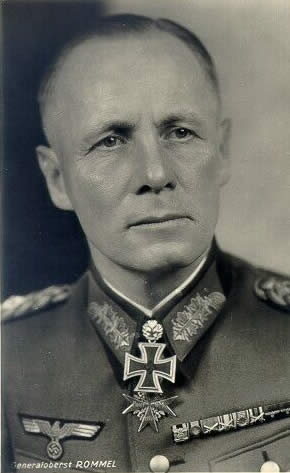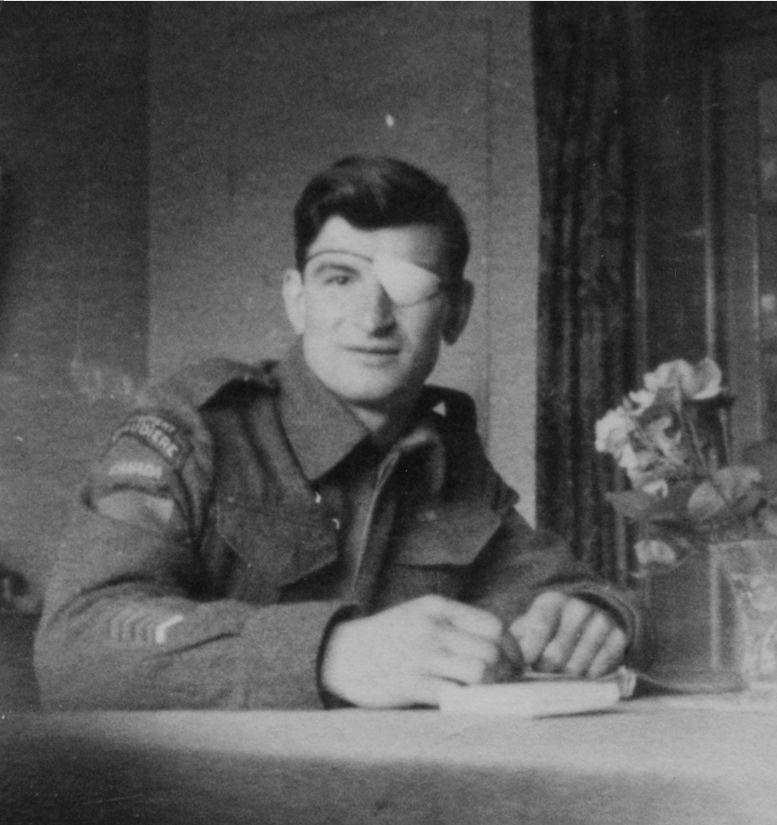The War in the Air
By Capt. Norman MacMillan, M.C., A.F.C.
The War Illustrated, Volume 6, No. 133, Page 72, July 24, 1942.
DURING the period Saturday, June 20, to Friday, July 3, 1942, air power played an important part in Libya and the Crimea.
The trend of contemporary British thought was dominated by the defeat of the British Eighth Army in Libya, the fall of Tobruk on June 21 after a 26-hours assault, and the subsequent retreat of the British Imperial Forces eastward from the Libya-Egypt frontier, past Mersa Metruh, to its stand 65 miles west of Alexandria for the beginning of the second great battle with Marshal Rommel's forces at El Alamein on July 2.
The importance of the outcome of this battle for Alexandria was enhanced by the evacuation of Sevastopol by the Russians on July 3 after a siege lasting nearly 8 months.
It is impossible at such close historical range to disentangle all the components which go to the making of victory or defeat in a particular battle, but just as the development of modern weapons has placed in the hands of generals the power of swift concentration of instruments of war with great destructive properties, so a general, to achieve success, must not only employ his own weapons with superlative precision of timing, but must deny the use of a proportion of equivalent weapons to the enemy.
Theses principles were applied by the Germans in the fifth battle of Libya and in the siege and capture of Sevastopol. In each case air power was used to obtain the desired object, but its application was in the one case indirect, and, in the other, direct.
The strategic setting of the two battles was similar. The contesting armies fought close to the seaboard. It was thus possible for all three arms of war to be engaged in active operations. The conditions were ideal for the employment of the speed, hitting power, and mobility of the air weapon.
The Russians and the United Nations each possessed surface sea superiority in the Black Sea and the Eastern Mediterranean respectively. At sea the smaller surface forces which opposed them were supported by submarines and air forces. In each case the superiority in surface sea power was unavailing against the combined pressure of all arms of the enemy. Both actions show that surface sea power does not possess the quality it formerly had of applying tremendous pressure upon an enemy and his lines of supply. As the range of guns has not altered appreciably during the past 25 years, the cause of the altered position of sea power must be ascribed to the development of air power.
This new situation in war was recognized by the United States within six months of her entry into the war, and the decision was taken during the period under review to build no more U.S. battleships at present, but to concentrate instead upon aircraft-carriers, aircraft, cruisers and smaller vessels (See p. 86).
Brigadier-General William Mitchell, Assistant Chief of the Army Air Service of the United States, was regraded to the substantive rank of Colonel in consequence of his too open advocacy of air power in the summer of 1925. Six months later, he was out of the army for good, deprived of rank, after a court-martial which tried him following his issue of a public statement which upheld his views in strong terms. This year the United States Government restored his rank, and posthumously (he died in 1936) promoted him to the rank of General. The type of bomber which first bombed Tokyo is called the "Mitchell".
The United States had to learn the lessons of Pearl Harbour, Wake Island, the battles of the Coral Sea and Midway Island, the fall of Malaya and Burma to re-cast their decision on the battleship-building programme. Now they are determined to possess "a terrific concentration of air striking power over the oceans."
Air striking power over the water played a considerable part in the German successes in Libya and the Crimea.
IN my previous commentary (see p. 40) I described the battle of the British convoys in the Mediterranean and pointed out how, even in the middle of a major land battle, Rommel had no hesitation in disengaging air power from immediate tactical employment in the field to prevent our convoys from running their full supplies to Malta.
If our convoys got to Malta, Rommel's own convoys would be imperilled in their trans-Mediterranean journeys to his bases.
We had air superiority over the battlefield. But Rommel had air superiority over the Central Mediterranean zone - in Libya, Tripoli, Sicily, Italy, Greece and Crete. The result of the action showed that Rommel had air superiority in the strategic sense, while our air superiority was tactical. The lesson for the future is that air supremacy -not simply local superiority- is the prime air power consideration in this war.
AIR supremacy includes the enjoyment of air bases. Rommel's victory at Gazala caused our Army to retreat, and with its retreat the R.A.F. lost its airfields. Tobruk was left without air cover. The German Stuka dive-bombers could operate unmolested. They drove the first breach in the defences of Tobruk.
Air power and secure air bases are synonymous terms. Air power is at its best in offensive action. It is less effective during retreat. This has been proved time and again during the past 25 years. The one shining exception was the Battle of Britain, wherein the conditions were exceptional.
During the siege of Sevastopol, the Russian sea communications were constantly imperilled by German air power. The Germans possessed better air bases for action against the fortress city than the defenders, who were, in the later stages, beleaguered. The Germans used their air power to pound the Russian communications and positions; in these circumstances the Russians put up a stout defence. Here the tale is the same story of the enemy's possession of superior strategic air bases.
There is a twofold lesson to be learned from these strategic defeats. It is that the strategic disposition of air power is even more important than its tactical employment. The second follows from the first, but the first does not follow from the second. Dispositions of all forces must therefore take into primary consideration the disposition of air forces. Norway, Greece, Crete and now Libya all fell because tactical air defence was attempted without strategic air strength.
IN the air war against Germany, Emden and Bremen were the principal targets: Emden, a port for the intake of iron ore from the Baltic en route to the Ruhr; Bremen, producer-city of submarines and trans-ocean aircraft. Bremen was the target for our third 1,000-bomber raid, concentrated into one hour and a quarter on the night of June 25, followed by additional raids on the nights of June 27 and July 2.
If we take the war out of the realm of the localized battlefields, and regard it as a world war, it will be seen that these raids on German industry are in a still greater sense just what Rommel did in the Mediterranean. Indeed, it can be said (although we have not yet got our strength together by any means) that our strategy is even more widely placed than Germany's. The official announcement that United States bomber squadrons will soon operate with ours from the United Kingdom in the war against Germany is further evidence of a world strategy which should mean that this is Hitler's last year of opportunity for victory.
Previous and next article from The War in the Air
The War in the Air
In the fast-moving panorama of the air war, some events appear to invest themselves with the significance of isolation. Dramatic as these happenings ofter are, it is a mistake to regard them as things
The War in the Air
The air war has raged without interruption over the Far East, in the Australasian zone, on the Russian front (where our Allies estimate that more than 3,000 enemy aircraft were destroyed during the tw
Index
Previous article
I Was There! - What the Americans Told Me About Midway
These first eye witness stories of the Japanese defeat in the sea and air battles off Midway Island on June 3 and 4 were told to Reuter's correspondent by American participants in the action. It wa
Next article
Sevastopol's Epic of Imperishable Glory
During the Crimean War, not quite ninety years ago, Sevastopol made history when for a year it withstood the assault of the combined armies of Britain, France and Turkey. Now a second siege of Sevast







